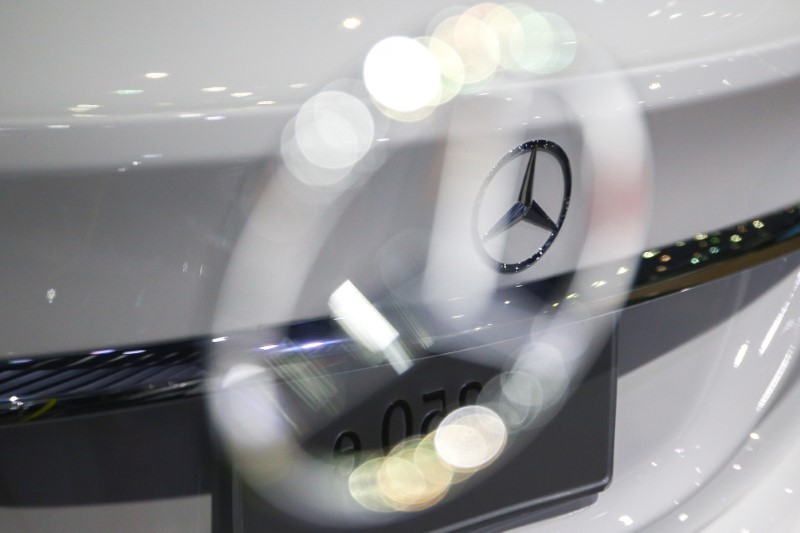Investing.com — Barclays (LON:) analysts have revised their views on two leading German carmakers, downgrading Mercedes-Benz (OTC:) Group AG to ‘underweight’ and upgrading Porsche AG (OTC:) to ‘overweight’, marking a shift in reflects market dynamics and expectations. for income paths.
Barclays revised its rating on Mercedes-Benz from ‘equal weight’ to ‘underweight’ and lowered its price target from €65 to €48.50.
This follows disappointing third quarter results, with the automaker’s automotive division reporting an operating margin of 4.7%, well below market expectations of 5.4%.
Analysts cited declining average selling prices, dealer incentives and one-time costs related to electric vehicle (EV) warranty provisions and stock clearances as the main causes of the profit shortfall.
Barclays expects a lower operating margin of 6-7% for Mercedes-Benz Cars for the period 2025-2026, compared to previous forecasts.
Market headwinds, including declining sales of top vehicles in China and the U.S., are adding to the company’s challenges.
While management has outlined structural efficiency plans, analysts remain cautious about their impact, especially in light of strict EU CO2 compliance requirements and increasing competition in electric vehicles.
Conversely, Porsche AG has been upgraded from ‘equal weight’ to ‘overweight’, with analysts maintaining a price target of €70.
The carmaker’s shares have underperformed the broader European auto index so far, but Barclays sees an opportunity for a recovery, describing the company’s earnings trajectory for the 2025-2026 period as ‘rebased’.
After a challenging year marked by profit warnings, Porsche now appears better positioned for growth, with expected annual earnings per share growth of >10% for 2025 and 2026.
Porsche’s strength lies in its pricing power and a robust product mix, supported by new model launches such as the E-Macan and 911 GTS.
The company has also placed emphasis on cost efficiency and aims to achieve high profitability even at a volume level of 250,000 units.
Despite uncertainties over volume and margin targets for 2025-2026, Barclays expects resilience against peers, driven by brand loyalty and stable pricing trends.
Barclays underlines a more constructive view of European automotive suppliers and has upgraded its view of the sector from ‘negative’ to ‘neutral’.
This shift comes amid a stabilized cost and operating environment alongside significantly revised earnings expectations.
Analysts see opportunities for selective offensive positioning in 2025, especially with suppliers such as Continental and Forvia.
Both are positioned to capitalize on cost-cutting initiatives and deleveraging after years of post-COVID challenges.
However, tariff risks remain significant, especially the potential 10 to 25% tariffs between the US and Mexico. These risks, which have been partially priced in, could create headwinds for global light vehicle production.
Still, analysts find shares at attractive valuations and trading at multi-year lows relative to historical multiples.
Barclays sees the wider European car industry as showing gradual improvement, despite ongoing challenges such as tariff threats and the risk of a VW strike.
Stabilized global light vehicle production, input cost normalization and improved cost efficiency are expected to support a better operational framework by 2025.
This backdrop supports renewed optimism about the sector’s free cash flow and shareholder returns.
Barclays sees 2025 as a potential ‘vintage year’ for European auto suppliers and select OEMs, with risks tempered by less risky earnings expectations.
Nevertheless, the sector’s path to recovery will depend on resolving tariff uncertainties, sustainable cost efficiency and effective navigation of evolving market dynamics.


